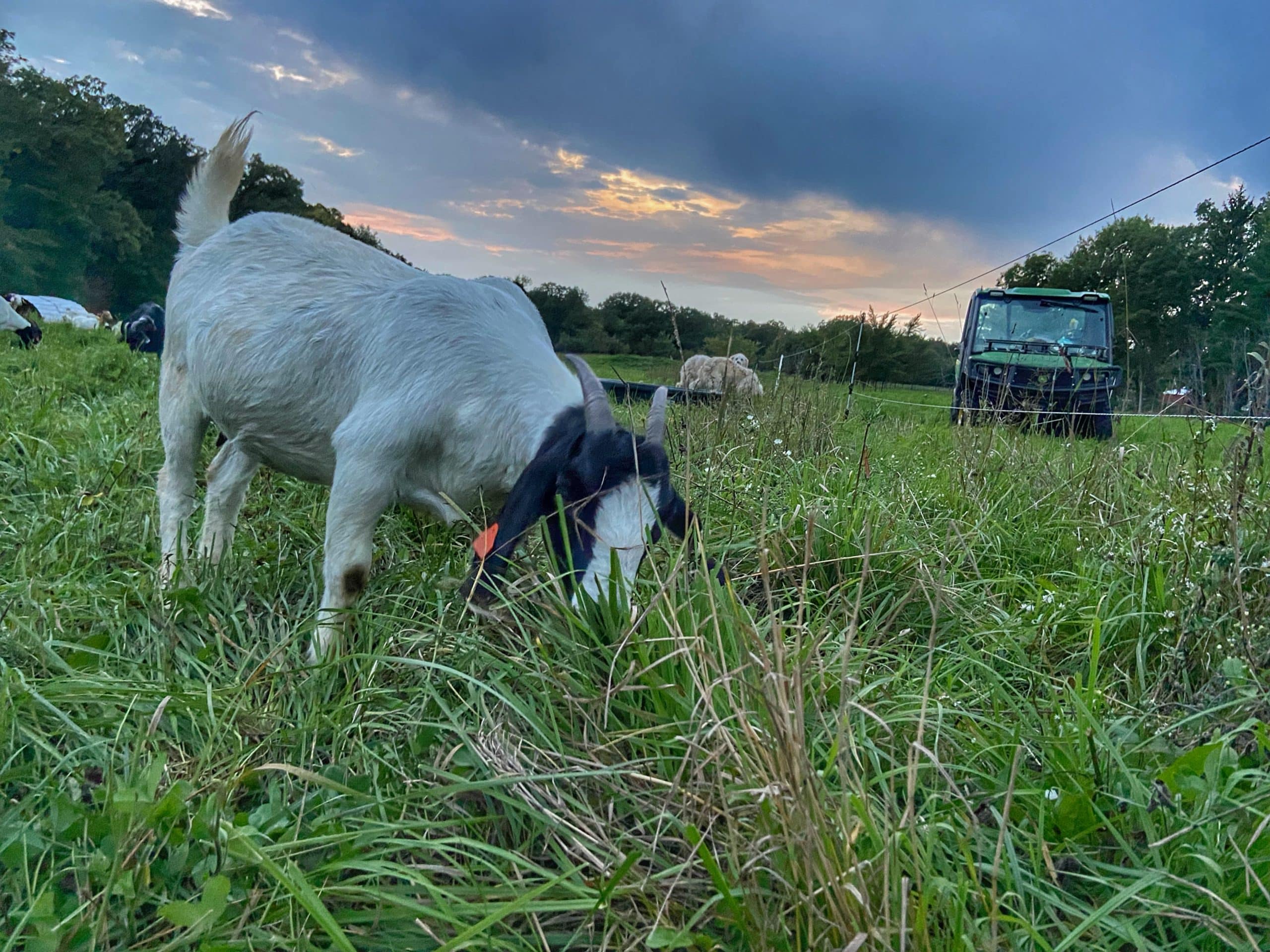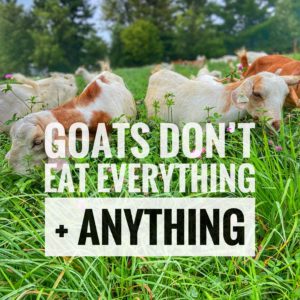1. Goats can be trained to electric fence
Yes, it is true. Goats can be trained to respect and stay in electric fence. How does it work? Fence training. Then, keep the fence hot at all times, make sure there’s enough pasture to eat, and repeat offenders/troublemakers find new homes.
2. Quick rotations are important for pasture, soil and goat health
Access to pasture is one thing. But what’s most important is to properly manage goats on pasture. This means using regenerative, rotationally grazing practices: divide your pasture into paddocks (smaller sections), then move goats into a new paddock every 1-3 days and not return to the area for at least 30 days. Research has shown this practice greatly improves goat health (fewer parasite issues), as well as is beneficial for the soil and regrowth of the pasture.
3. Goats don’t eat everything!
No tin cans here! Well, I’m hoping you’d assume this too!
Goats just eat what other species of livestock don’t eat. Goats dietary preference tend to be about 20% forages (grasses/legumes), 20% weeds, and 60% browse (brush/trees/woody plants), according to the Pastures for Profit: A Guide to Rotational Grazing (Undersander, D. et al., 2002).
On our farm we’ve found that quality pasture, including alfalfa and clovers, have been important to provide the nutrition they need, in addition to having access to weeds and brush. They’ll eat grass, but it’s not as preferred as other options.
Want to know more? Read more about goat pastures at this blog post.



[…] Three things you might not know about raising goats on pasture (post) […]